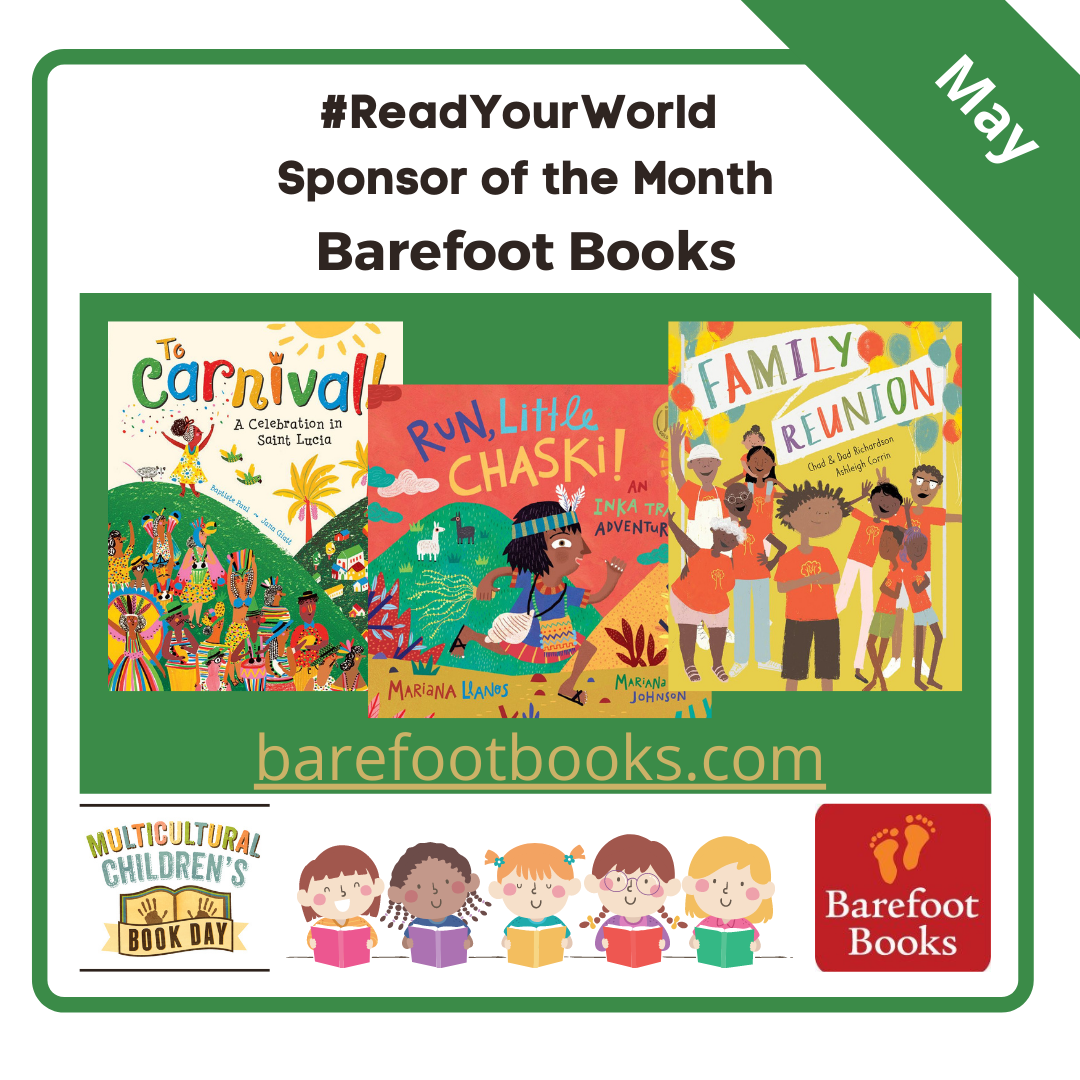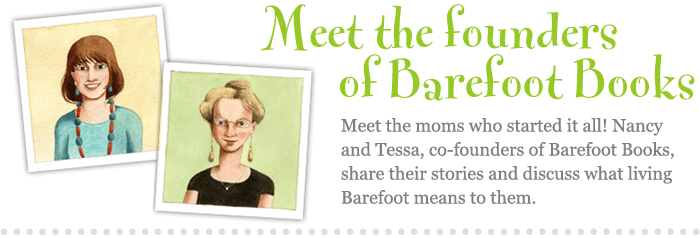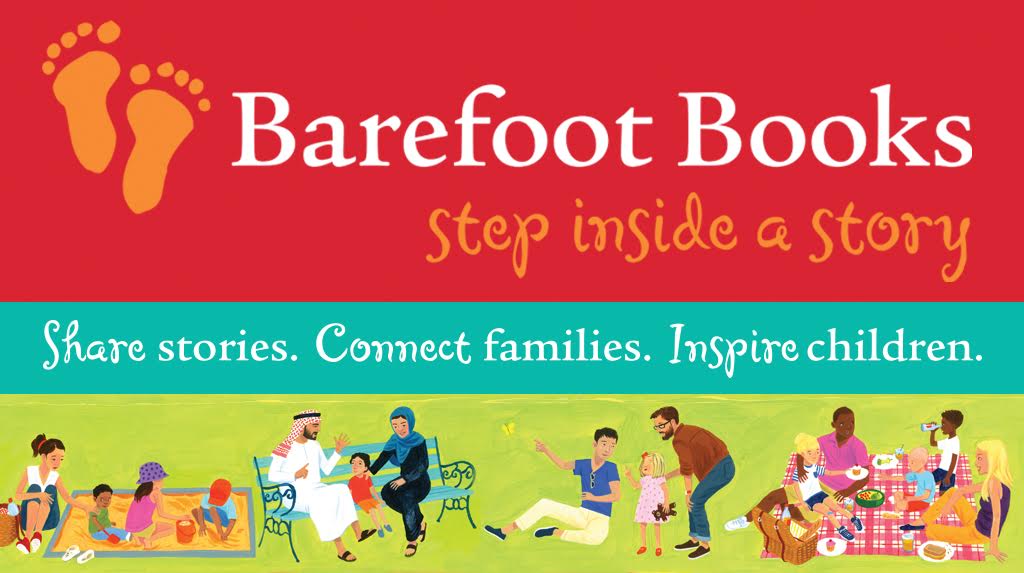(Guest post from Barefoot Books)

From the very beginning, Barefoot Books have represented a vast array of cultures and perspectives, while also providing children of all backgrounds a mirror of their own experiences. [Read more…]
(Guest post from Barefoot Books)

From the very beginning, Barefoot Books have represented a vast array of cultures and perspectives, while also providing children of all backgrounds a mirror of their own experiences. [Read more…]
{Guest post from the Barefoot Books Team}
There’s no replacement for kids getting together in person. But anything that gets kids actively thinking about their friends can help them feel less lonely.
For the families whose kids are socially isolating, this has been one long summer . . . and it looks like the autumn could be more of the same. The loneliness many kids are feeling is top of mind for parents as we face the potential of remote schooling and many more months of separation from friends and family.
Video chat is an obvious solution that many families have been turning to, and it certainly has its place. But, as you’ve probably noticed, kids don’t engage in play as fully or meaningfully over video as they do when they can do hands-on activities without the distraction of a screen. Creating new opportunities for children to think about others is one of the key ways we can help them through this difficult time. Fortunately, the simplest activities can sometimes be the most meaningful!
Here are three screen-free activities that can help kids feel more connected when they are physically apart.
Creating your own “lending library” system with one or more partner families is an easy way to help friends interact with one another from a distance. Plus, it’s an economical way to mix up your home book collection. This activity is great because you can keep it simple or you can weave in lots of creative side projects as you prepare your swap.
You Will Need:
Activity Steps:
After you’ve done a first round of swapping books back and forth, try again with the same family and a different set of books, or invite a new family to participate!
With this activity from the bestselling Global Kids activity deck, your child can create a visual reminder of how they are connected with others.
Ubuntu is an important idea in South Africa: it refers to the bond that connects all people and is often translated as “I am because we are.” The practice of Ubuntu means caring about the needs of others by being kind, helpful, and generous.
You Will Need:
Activity Steps:
This classic activity is probably going to see a major resurgence if it hasn’t already. Letter “writing” is a wonderful way for children to connect with one another, whether they’re reading and writing independently or not. Feel free to have them draw a picture or even color in a coloring sheet for a friend and write down any words they want to say.
You’ll Need:
Activity Steps:
Barefoot Books has a New Website!
We have launched a new website where you’ll enjoy many new features such as a revamped Living Barefoot Blog, detailed product descriptions, and an easier way to browse and find the perfect books and gifts for the children in your life. Our Autumn/Winter catalogue is also here and has information about our new titles as well as our backlist favorites in easy to navigate categories.
Browse their catalog of beautiful and diverse books HERE.
Why Do Adults Need to Discuss Diverse & Inclusive Books with Children?
Guest post by Stefanie Paige Wieder, M.S.Ed.
The need for diverse and inclusive books for children has become clear. When children see themselves reflected in books, it increases their feelings of positive self-worth. Conversely, when children rarely or never see themselves reflected in books, they receive the message that they are outside of what is acknowledged and accepted as “normal.”
Furthermore, research shows that without thoughtful adult intervention, children develop stereotypes. As early childhood anti-bias education expert and human development faculty member at Pacific Oaks College, Louise Derman-Sparks, explains:
“By the age of two, children begin absorbing socially prevailing stereotypes, attitudes and biases about themselves and people different from themselves. They begin to show discomfort or fear or even dislike toward a person with a different skin color, different language or with a physical disability.”
Books that depict people from all walks of life help combat this. But they can’t do the work alone.
Why the need for adult conversation around these books?
Children often need adult guidance in order to make the connection between what they read in books and their own knowledge and experiences. Connecting new information to what they already know enables children to make meaning of the new information and integrate it into their lives. Savvy teachers often introduce a topic by asking children what they already know. This activates children’s prior knowledge, which gives them a context for integrating new information. It also allows the teacher to assess where there may be gaps in understanding.
Adults also play a key role in answering questions about a book: providing explanations and factual information, or modeling for kids how to do research to get additional information.
Talking explicitly about issues like culture, race, religion, sexual orientation and abilities can be awkward for adults. But for children, it’s not awkward. It’s essential. They are already thinking about these topics and making sense of them in their own way, whether adults talk with them about it or not.
When having conversations with children, adults should find the balance between drawing out what kids know and providing factual information. If a child does express a stereotype or incorrect notion about others, it is important for the adult to gently correct their thinking.
Diverse and inclusive books are a critical and welcome part of children’s lives. As adults, it’s our role to make sure children receive and understand the messages of these books with open hearts and clear minds.
What do your children see in the books they read?
 Stefanie Paige Wieder, M.S.Ed, is Senior Director of Product at Barefoot Books and a child development expert with over 20 years of experience. She earned her dual master’s in Early Childhood General & Special Education / Infant & Parent Development & Early Intervention from the Bank Street Graduate School of Education and her B.A. from Harvard University.
Stefanie Paige Wieder, M.S.Ed, is Senior Director of Product at Barefoot Books and a child development expert with over 20 years of experience. She earned her dual master’s in Early Childhood General & Special Education / Infant & Parent Development & Early Intervention from the Bank Street Graduate School of Education and her B.A. from Harvard University.
Want more of Stefanie’s expert tips to nurture your child or students’ empathy? Download a FREE empathy-boosting activity and discussion guide here!
Founded by two young mothers, Nancy Traversy and Tessa Strickland, in England in 1992, Barefoot Books has published 600+ multicultural books for children that encourage discovery, imagination, creativity and global citizenship.

Their first app, Barefoot World Atlas, has 4 million downloads, and their YouTube Channel has 80 million views. Most importantly, over nearly a quarter of a century, Barefoot has put more than 20 million books into the hands of children around the world. Now based in Cambridge, MA, Barefoot is leveraging its vibrant, timeless family brand with a social selling model that empowers women entrepreneurs. With a mission to “Share Stories, Connect Families, and Inspire Children,” Barefoot believes that sharing diverse and inclusive books nurtures compassion in our next generation, helping to create a kinder, more accepting world.

Read Your World is a 501(c)3 non-profit organization
